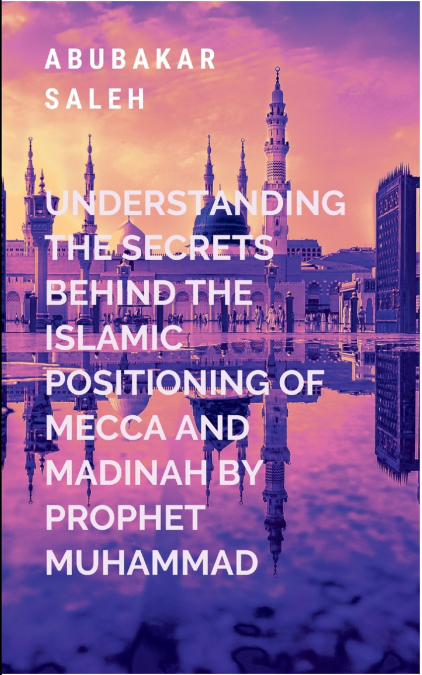
S Abubakar
This book unravels the profound significance behind the Islamic positioning of Mecca and Madinah by Prophet Muhammad, offering readers an illuminating journey into the spiritual, social, and political foundations of Islam. It explores how these two cities, central to the Prophet’s life and mission, became more than mere geographic locations-they evolved into enduring symbols of faith, unity, and justice. Through careful examination of historical events and Quranic teachings, the book reveals the transformative power of the Prophet’s vision in reshaping Arabian society and beyond.Delving into the challenges faced by early Muslims in Mecca, the narrative captures the resilience and steadfastness that characterized the Prophet’s leadership amidst persecution. It highlights the spiritual significance of Mecca as the site of the Kaaba, emphasizing how Islam reclaimed and redefined this sacred space to represent the unity of God and the collective identity of believers. The migration to Madinah is portrayed as a strategic and spiritual turning point, where Islam transitioned from a persecuted faith to a thriving community with a groundbreaking social contract.The Constitution of Madinah, a pioneering document of pluralism and justice, is examined in detail to showcase the Prophet’s visionary approach to governance and interfaith harmony. Readers will discover how the mosque in Madinah became the epicenter of community life, justice, and learning, reflecting the integration of faith into daily social and political structures. The ethical framework introduced during this period, especially regarding warfare and social welfare, laid the groundwork for the moral compass that continues to guide Muslims worldwide.This book also traces the remarkable unification of Arabian tribes under Islam, culminating in the peaceful conquest of Mecca and the cleansing of the Kaaba. The Prophet’s unparalleled capacity for forgiveness and reconciliation is brought to life, illustrating how these acts fostered lasting unity and set a powerful example for leadership. The dual role of Mecca and Madinah as spiritual and administrative centers is explored, revealing how they anchored the growth of an Islamic civilization rooted in justice, compassion, and community.Beyond historical narrative, the book invites readers to reflect on the enduring lessons of the Prophet’s mission. It emphasizes the seamless integration of spiritual devotion with social responsibility, showing how faith can be a transformative force in both personal and societal realms. The legacy of Mecca and Madinah, as shaped by the Prophet Muhammad, continues to inspire millions, offering timeless guidance on leadership, unity, and moral integrity.Ultimately, this work is more than a historical account-it is a source of inspiration and insight for anyone seeking to understand the foundations of Islam and the profound impact of its earliest communities. Through vivid storytelling and thoughtful analysis, it sheds light on how two cities became the heart of a global faith, forever changing the course of history and the lives of billions.